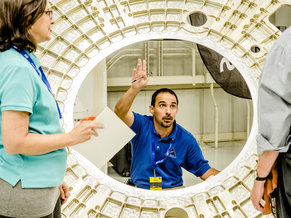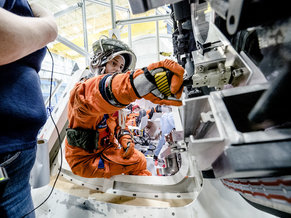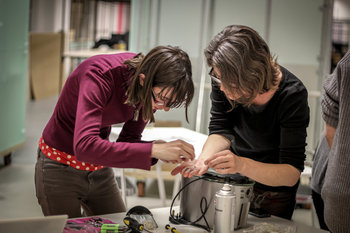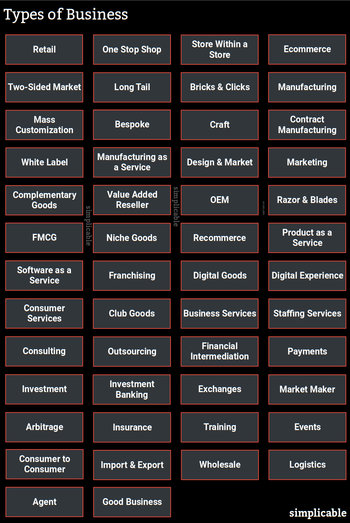
Preparation
Preparation such as a mechanic who carefully lays out their tools before beginning a repair.Planning
Planning a task before you begin such as creating a checklist for a maintenance procedure.Design
Designing things before you create them such as a software developer who develops a software design before they write any code.Practice
Practicing a task before you begin. For example, rehearsing a speech as opposed to winging it.Communication
Paying careful attention to what you say or write to convey your ideas with color and conviction and minimize the chance of being misunderstood.Listening
Listening with intent to understand, including reading the emotion and body language of the speaker.Diligence
The level of care that you apply to a task. For example, a pilot who intensely concentrates when they land an aircraft such that they are immune to distraction.Accuracy
The degree of accuracy that you include in your work such as a news article that states that Antarctic ice sheets lost "2,720 ± 1,390 billion tonnes of ice between 1992 and 2017" as opposed to "Antarctica is quickly melting."Risk
Identifying, analyzing and quantifying risk as opposed to making broad and general statements such as "this is risky" or "this is a bad idea that will fail."Refinement
Working to improve something towards a state of perfection. For example, a designer who views a mobile device as a work of art that should instantly spark passion in the customer.Inspection & Review
Carefully testing, inspecting and reviewing your work to find mistakes. This can include a process of feedback or peer review.Types
The following are common types of attention to detail including things like preparing, managing risk and accuracy.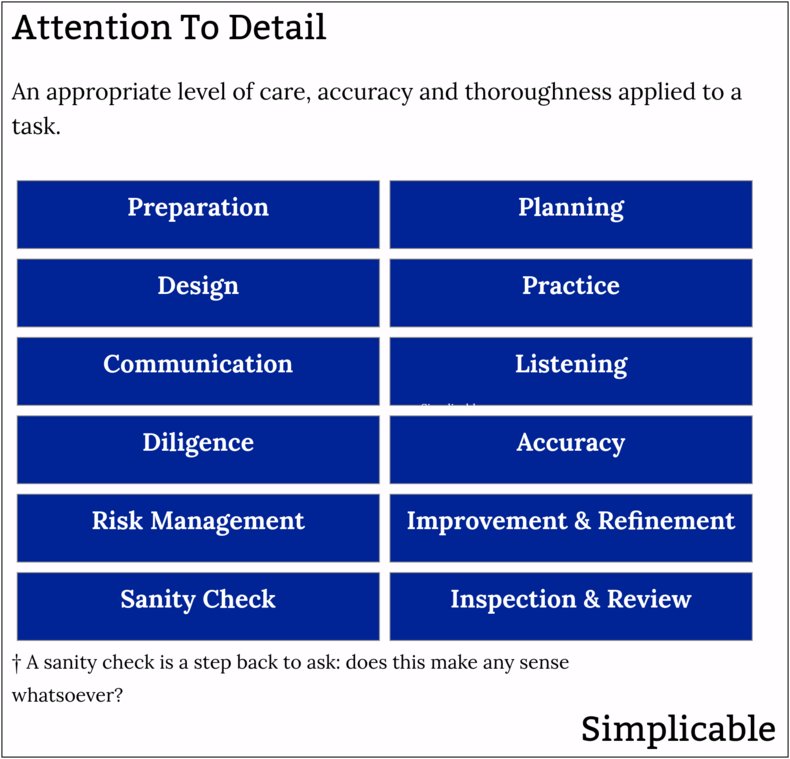
Summary
Attention to detail is a talent and a process whereby an appropriate level of care and diligence is directed into tasks and activities.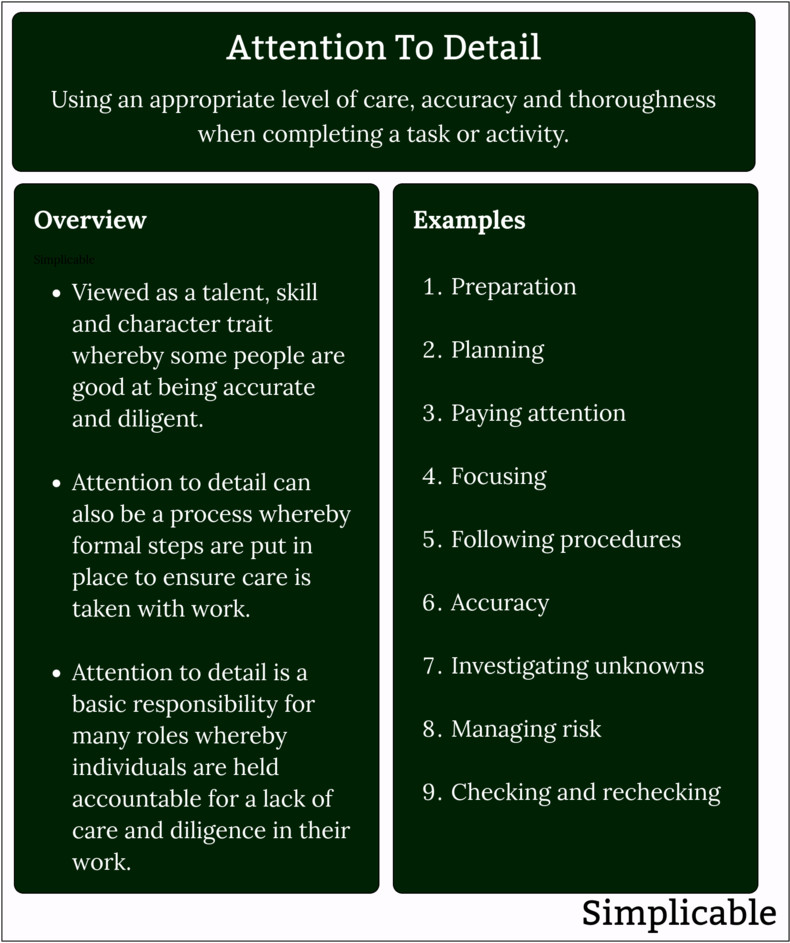
| Overview: Attention To Detail | ||
Type | ||
Definition | The level of care, accuracy and thoroughness applied to a task. | |
Related Concepts | ||

